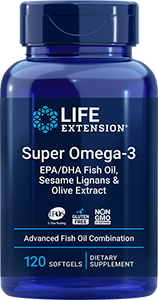| Complementary alternative medical therapies (CAM) is a collective term for an array of remedies that lie outside what is traditionally considered conventional medical treatment for cancer. These include the use of herbal, vitamin, and nutritional supplements, as well as physical and psychological interventions such as exercise, relaxation, massage, prayer, hypnotherapy, and acupuncture (Deng G et al 2005; Hann D et al 2005; Molassiotis A et al 2005). The use of CAM as a component of integrated cancer treatment regimens may help patients reduce the side effects associated with conventional cancer treatments, alleviate symptoms, enhance immune function, and provide greater quality of (and control over) life (Deng G et al 2004, 2005). Natural strategies known to prevent the development and progression of cancer include: - Calcium
- Carotenoids
- Curcumin
- Garlic
- Green and black teas
- Folic acid
- Melatonin
- Selenium
- Silymarin
- Vitamin A
- Vitamin C
- Vitamin D
- Vitamin E
- Vitamin K
Curcumin, extracted from the spice turmeric, has preventive and therapeutic anticancer properties (Aggarwal BB et al 2003; Sharma RA et al 2004). Curcumin can stop the growth of cancers of the prostate (Dorai T et al 2000; Dorai T et al 2004), colon (Narayan S 2004), and breast (Inano H et al 2000). In a phase I clinical study of colorectal cancer patients, curcumin in doses of up to 3.6 grams a day improved some clinical markers and was not associated with any toxicities (Sharma RA et al 2004). Clinical studies have shown that curcumin in doses of up to 10 grams a day had no adverse effects in humans (Aggarwal BB et al 2003). Curcumin is known to arrest the growth of established cancer (Furness MS et al 2005) by interfering with the production of growth factors that cancer cells need to establish new blood vessels and thus invade other organs, a process known as angiogenesis (Arbiser JL et al 1998; Dulak J 2005; Furness MS et al 2005). | Life Extension Daily News
Daily News in Nutrition, Dietary Supplements, Health and Wellness Today 
Current findings published by news media worldwide on the topics of health and wellness, dietary supplements, diseases such as atherosclerosis, arthritis and stroke, and numerous other subjects of interest to those who wish to live a longer, healthier life are posted each day in Life Extension Daily News. New articles posted seven days a week under the headings of vitamins, nutrition, disease and aging cover a range of subjects, from health tips for the lay person to peer-reviewed medical journal reports. Your Daily News has gone mobile—introducing Life Extension Mobile Health News. Download our free application available for the Android and iPhone/iPad and get the news you want anywhere you go. 
Available on the App Store
Compatible with iPhone, iPod touch. Requires iOS 3.1.3 or later.

Available for the Android
Acquire Life Extension® Health News for Android by scanning the barcode with your smartphone or search “Life Extension Health News” in the Android Market. |

















